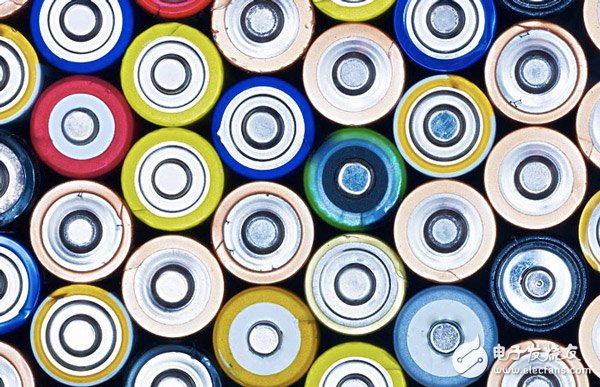The Korea Herald reported that Hyundai is developing solid-state car batteries. Interestingly, Hyundai has also set up a small-scale solid-state battery production line, which shows that Hyundai Motor is quite serious about the solid-state vehicle battery project.
The source said: "Nanyang R&D Center, owned by Hyundai Motor Co., Ltd., is developing solid-state batteries. The center has established an unprecedentedly strong R&D team and has mastered a certain degree of technology."
It sounds promising, but look at other developers who have encountered difficulties in solid-state battery research, so we have to be suspicious of Hyundai's projects.

Solid-state batteries can greatly increase energy density, are safer and more reliable, so they attract a lot of people's attention. Solid electrolytes have advantages in many respects compared to liquid electrolytes.
Replacing organic electrolytes with non-flammable, more stable non-organic solid electrolytes can make battery design simpler and enhance system safety and durability. In addition, we can also use large-capacity electrode materials in solid-state batteries, such as the combination of a sulfur positive electrode and a lithium metal negative electrode. It is difficult to use these two materials in a conventional liquid electrolyte battery.
Solid-state batteries can improve packaging efficiency because the cells can be stacked in series to form a bipolar structure. The space between the cells can be reduced to increase the energy density.
Despite its many advantages, solid-state batteries have several challenges: the low conductivity of solid electrolyte ions leads to limited power density of the battery; the electrode-electrolyte interface is not very compatible; the electrode has limitations in terms of dynamics.
Hyundai Motor independently developed solid-state battery technology and did not cooperate with experts from Samsung SDI and LG Chem. Some companies are considering solid-state batteries as the next generation of batteries, which are being studied, such as Samsung SDI and LG Chem. In smartphones and electric vehicles, solid-state batteries are expected to replace lithium batteries.
Solid-state batteries use a solid electrolyte instead of a liquid electrolyte, so they are less prone to fire and explosion. When the liquid electrolyte flows out and comes into contact with air or water, an explosion occurs.
Corporate trendsSources pointed out that Hyundai's research method is somewhat similar to that of Toyota. Toyota has a production line to produce solid-state batteries. Around 2020, Toyota is preparing to commercialize solid-state batteries, but experts believe that Toyota needs more time. Toyota currently has a team of 200 engineers working on solid-state batteries at the Higashi Fuji Technical Center, with fewer than 30 modern engineers.
Choi Jung-deok, an analyst at the LG Economic Research Institute, believes that solid-state batteries are still far from reality, and the future is not very certain. If automakers can mass-produce next-generation batteries, the future model of batteries will change dramatically.
Industry insiders expect that Hyundai Motor will mass-produce solid-state batteries after 2025. Considering that the car production cycle is 5 years, the battery will be ready around 2020.
Traditional battery manufacturers Samsung SDI and LG Chem are also developing solid-state batteries, which may be the first to introduce new solid-state batteries that have some liquid electrolytes and are not directly mass-produced solid-state batteries. Solid-state batteries are safer than lithium-ion batteries and easier to produce than solid-state batteries.
Samsung SDI and LG Chem confirmed that the company is developing solid-state battery technology, but they are not willing to disclose which step of the development work. Solid-state batteries have a lower risk of explosion and are safer. Although companies are currently researching a wide variety of next-generation batteries, solid-state batteries are likely to enter the market soon.
A TPU Screen Protector made of the super toughness of the honeycomb structure. Its unique ultra-soft properties allow it to cover the most complex curves and contours in a device.
The self-healing design of the Hydrogel Screen Protector can protect the display screen of the device from damage, leave no air bubbles, and maintain the sensitivity of the touch screen. Advanced anti-fingerprint and dust- and oleophobic overlays keep your screen smudge- and dirt-free. This overlay is also important in providing maximum touch sensitivity for improved high-speed glide and optimal touch response.
The optical transparency of the Hydrogel Film is more than 90%, showing you the most original screen color and bringing the most realistic visual experience.
If you want to know more about the product information of the Hydrogel Screen Protector for Samsung, please click the product details to view the parameters, model, picture, price and other information of the Samsung Screen Protector.
Whether you are a group or an individual, we will do our best to provide you with accurate and comprehensive information about Hydrogel Screen Protectors!
Screen Protector For Samsung,Hydrogel Screen Protector for Samsung,TPU Screen Protector for Samsung,Hydrogel Film for Samsung
Shenzhen Jianjiantong Technology Co., Ltd. , https://www.jjthydrogelprotector.com